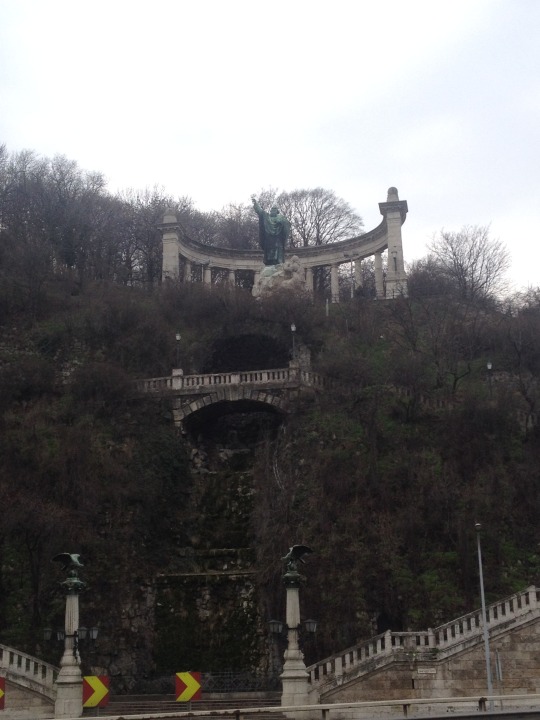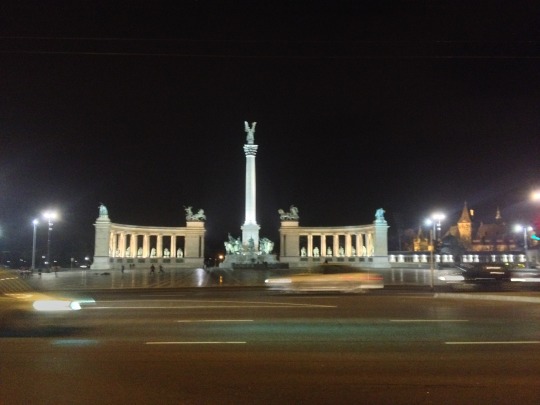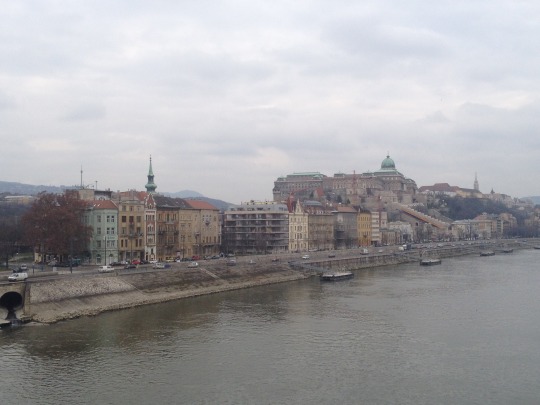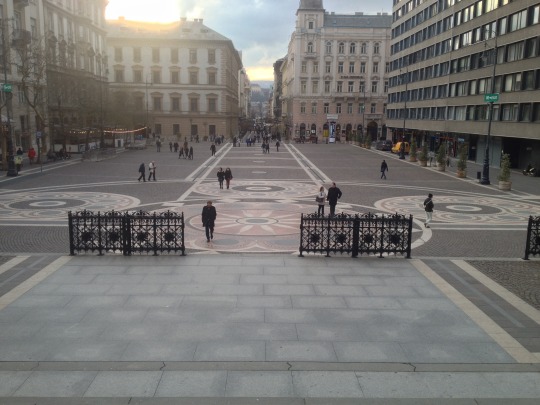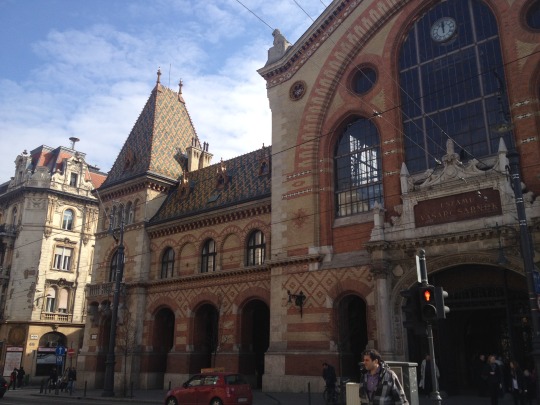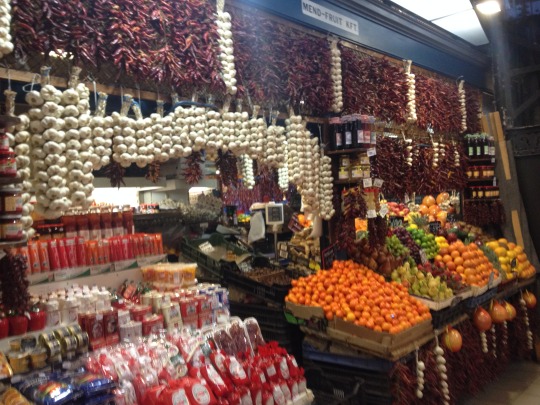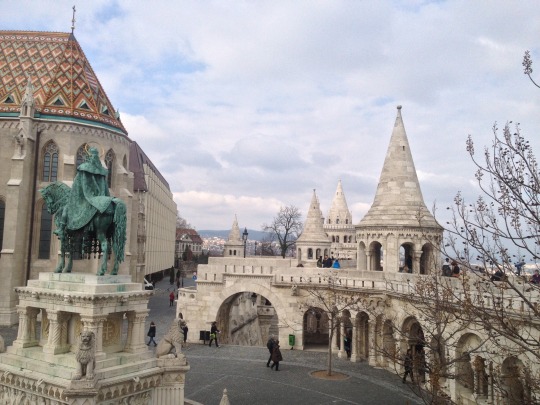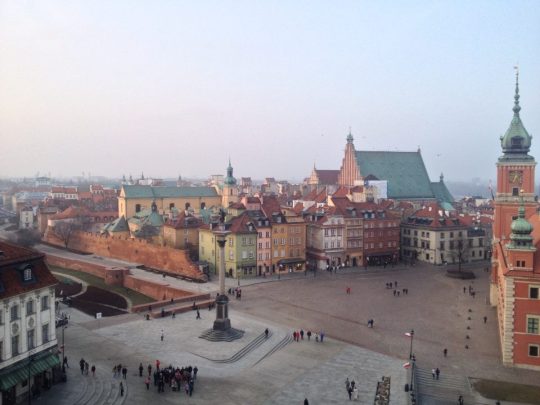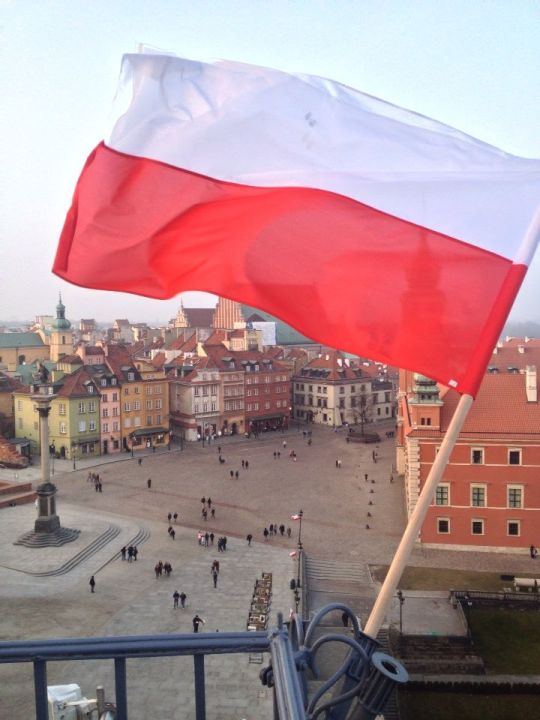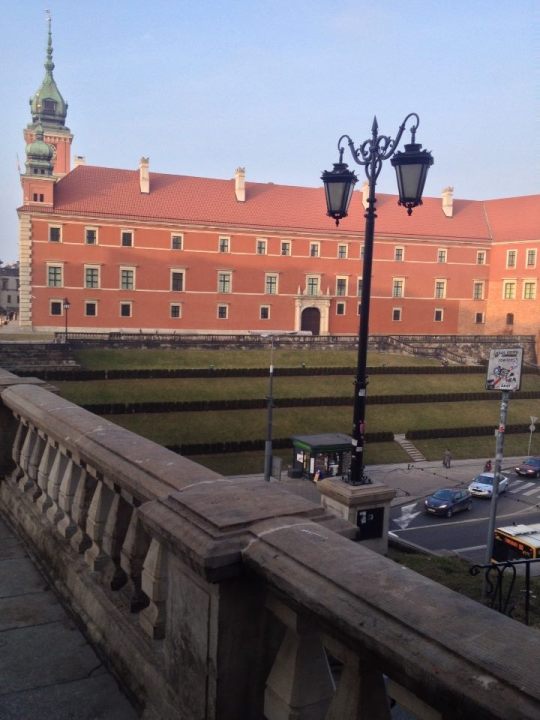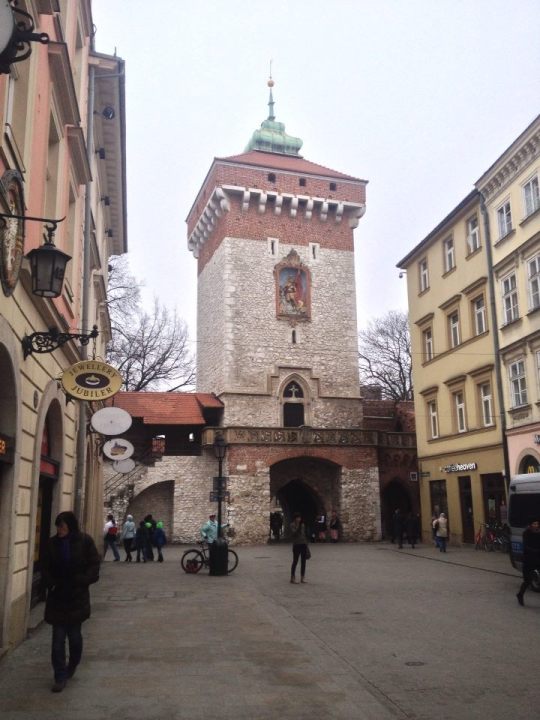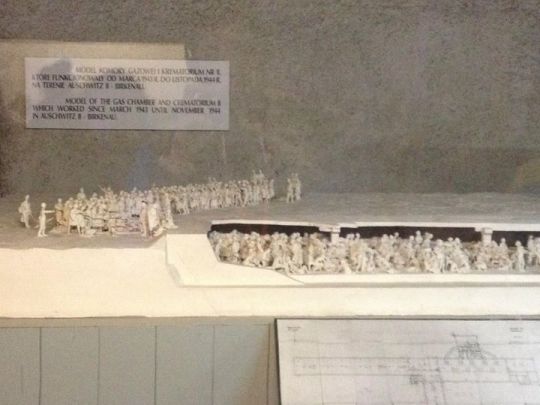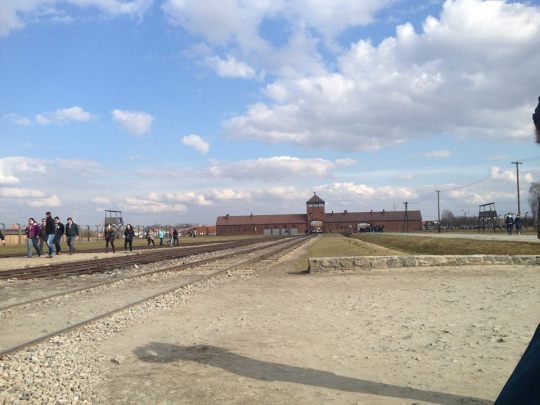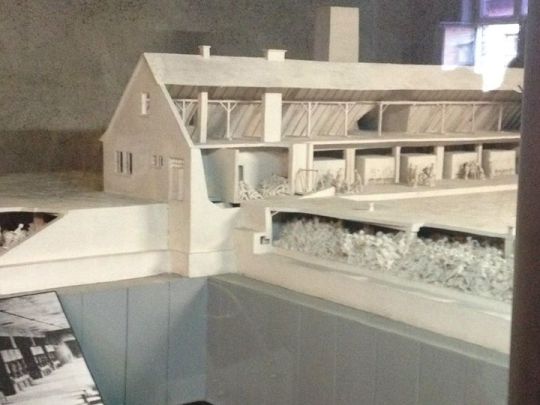Text
June 29
Yesterday was a tough day. Some people say that we, “the media,” have become numb to mass shootings, that we have a routine in place. And while there certainly are guidelines to best deliver the latest information, it feels nothing like routine. The familiar pain comes back. The sadness is held back until we’ve done our job, but it eventually comes out strongly. The “am I bringing kids into a world where their school may become the slaughterhouse?” thought returns with even more force than before. Like the waters in a wave that, just after hitting the shore, recede just to become a bigger, more powerful wave.
Yesterday’s wave hit hardest. How much closer does it get? A small newsroom, one whose work I read every day precisely because of their quality and local approach. You could find a crime story just as easily as you could find high school sports results with dramatic and beautiful shots of the young players. Virtually the same work my newsroom does less than 40 miles away.
Now the fear is not about my kids going to school with a ticking time bomb, it’s about someone listening to the content on our airwaves and feel like we deserve capital punishment for it.
And it’s not like that person doesn’t exist. There’s people with obvious disabilities who call us on a daily basis to talk to this or that person, or to complain about this and that. I’ve gotten heat from callers just because they don’t like a story and then hear that my name is Carlos.
And what has it come down to? One of these people to get angry because we couldn’t take a call one day? Or someone that thinks our bias has gone too far, calls our newsroom and, upon hearing Carlos answer, decides to take action? Will we, in analyzing the impact of a policy, or in telling you that your neighbor is someone to keep an eye on, automatically deserve to be slaughtered by that neighbor? And if you think I’m exaggerating, look at what triggered the attack on the Capital Gazette. The flags aren’t always there, and for fuck’s sakes, we shouldn’t be watching for flags at all.
“Don’t let fear keep you from doing a story” is a mantra journalists tell themselves since even before becoming a journalist. But this fear used to refer to gangs, terrorist, crook politicians, people that meant an obvious threat, not just about anyone who was upset about your story. Think for a second of those reporters whose social media accounts and emails get bombarded on a daily basis with death threats, insults, and attacks. How can they brush the hate away anymore? Why is part of their job now to look for flags that no one is so angry at them that their life is at risk?
Things matter. That comment you posted that you thought meant nothing, matters. That hateful speech you heard the other day and thought “well, but it’s just words”, matters. Policies that you may think inconsequential or that you just choose not to think of, actually affect the lives of entire generations. Don’t let the world of the digital and the bubbles convince you otherwise.
I’m angry that this, too, will become a political issue, and not because I hate or love politics, but because it will lead to no action whatsoever. At best, now I’ll have to walk through a metal detector on my way to work. I’m angry that we’ve become so split a society to do anything about the fact that a mentally-ill person can become a monster and install terror on entire groups with the swipe of a card.
You can put a name on what’s got us here, but that won’t change that tomorrow I’ll be working in a newsroom, ensuring that you’re getting news you can use, while also watching my back and turning to see who’s getting off the elevator. It won’t change that today, I’m mourning the loss of colleagues whose only job was to love and serve their community. It won’t change that in a little bit no one will be talking about how the Capital Gazette was the last victim of an ignored plague in our country.
0 notes
Text
Dante’s Venezuela
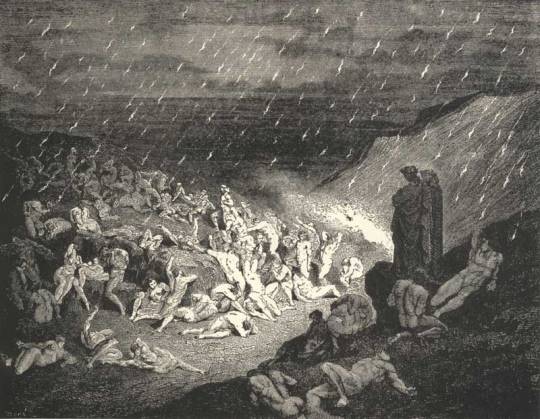
2017 has effectively been a transition year for Venezuela. Through protests, strikes, and votes, the country’s opposition has tried to bring change and a new government without international interference, ineffective economic policies, and links to drug cartels. By contrast, President Nicolas Maduro and government party leaders have resisted change in power through military repression and rulings from a manipulated Supreme Court.
The story of the past 6 months is everything in between the opposites. Also in between is the likeliest outcome: far from what the government says, change is coming; but far from what the opposition proposes, it may be coming to strengthen Maduro’s power.
The coming installation of a new Constitutional National Assembly on July 30 will allow the president’s party to draft a new constitution, the second one written by them in less than twenty years. They need it to further enable repression against rivals, deepen corruption, and “legalize” their government (under the current Magna Carta, no interpretation legitimizes this government). Protests will come before, during and surely after the election is held, but after six months on the streets, Venezuelans have come to a grim realization: the government will sooner shoot all protesters before giving in to their demands.
Of course, that is not the case for everyone. Numerous young rebels (known as the Resistencia, or resistance) still clash against the military across the country. They are first to get to the protests, and are usually last to leave. While they’re out, they throw back smoke grenades, block pellets with cardboard shields, and pick up the remains of their killed brothers in arms. Demonstrations called by opposition leaders still have large turnouts of people convinced that, for some accident, that demonstration will bring change, or that someone in the government will turn and change the fate of the country.
Beyond this hope, slowly, the gates of hell are becoming visible to more and more people. The words “Abandon all hope, ye who enters here” have been in the mind of the most pessimistic for years, and now, they are crawling in the common belief across the country. The opposition is fighting hard and well, but bullets can’t be repealed by words. Opposition supporters are starting to believe that democratic, non-violent fight has given all it can (the international wide-spread rejection of the government, massive discontent across the nation, some political prisoners serving their time from home), and in the face of a violent escalation, they question how clear their path is. Living in the twenty-first century Cuba is a dreadful thought, but dying for it feels too high of a price.
Fleeing Venezuela is the third option many people have taken. And while it’s been the worst-case scenario for many in the recent years (most who can afford plane tickets and relocation costs have certainly thought of leaving), it has suddenly become the more clear picture as they realize that Venezuelan democracy is far too broken to be saved.
Florida Senator Marco Rubio, the loudest voice in the United States against Maduro’s regime, recently called the former president of Venezuelan congress and government mastermind Diosdado Cabello the ‘new Pablo Escobar’. While the comparison holds in many ways, it falls short in measuring Cabello: despite his popularity and power, the highest seat Escobar ever held was in congress, and for a very short time. Cabello has occupied a number of ministries, holds a seat in Congress since 2010 (even after losing the vote in his riding in 2015), and was even the acting transition President during Chavez’ brief coup in 2002.
The dystopic hope that Pablo Escobar had in Colombia through the 80s has somehow materialized decades later in the country next door. Venezuela’s government is run and operated by drug dealers, who know if they ever lost power they would face trials in their country, the United States, and even The Hague. No place will be a safe hiding spot for Maduro and his cartel. So while the have the money to buy the military and fund guerrillas, why would they negotiate an exit? The well-being of the country, it is clear, is not something they are, or have ever been, interested in.
0 notes
Text
The neglected costs of dialogue and diplomacy.
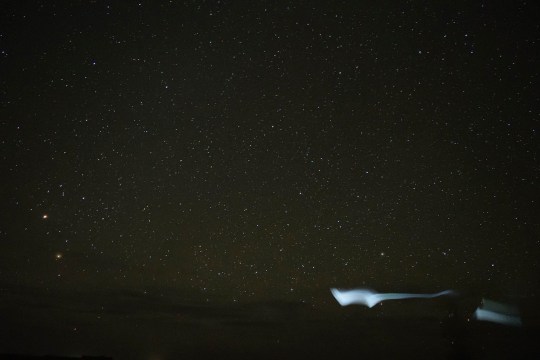
Atop a rocky and sandy hill, next to our assigned Land Cruiser, the cameraman and I were trying to get a perfect shot of the sunset over the refugee camp of Smara. As he filmed, some kids that were playing around came to us to find out what we were doing.
After learning the name of my companion, Adam, they decided I would be Eve. The kids looked much younger than they actually were, a commonality in the Saharawi refugee camps south of Algeria. Malnutrition, I assume, is largely to blame for this phenomenon.
While most kids looked at the camera and made jokes amongst themselves, one kid stopped and asked me, in flawless Spanish, why we were filming. I tried to end his interest by explaining our mission in as broad of terms as I could: we were filming a documentary on the role of women in the Saharawi resistance. Far from losing interest, Ali, the kid, became curious about our project and asked if I really knew what was happening in his country.
“(the Moroccans) want to keep us here, that’s their way to win,” young Ali said to start his exposé.
During the Scramble for Africa in the late 1800s, Spain claimed the territory of Western Sahara and occupied it for over a hundred years until the seventies. Political instability forced Spain to dispose of the territory, seceding it to neighbors Morocco and Mauritania. The Tripartite Agreement, as it was known, ignored the Saharawi people and their claim as the original occupiers of the territory. What followed was a war between Mauritania, Morocco, Western Sahara’s organized army force, the Polisario Front.
Against the odds, in 1979 Polisario successfully defeated Mauritania, forcing them to recognize the legitimacy of their claim over the Saharawi territory. Meanwhile, in the chase of the nationalist dream of a Greater Morocco, the country started a military invasion all throughout the territory. The military invasion, which included napalm bombings, forced the Saharawi to an eastward diaspora, causing a collateral damage amounting to thousands of deaths. In the merciless Algerian Sahara desert, the expelled Saharawi people have found refuge for close to 40 years.
Exploitation of phosphate is a major activity in the invaded territory. In order to protect the mining, Morocco built a 2,500-kilometre wall. Protected by soldiers and filled with landmines, the wall also helps keep the Saharawi away from their legitimate land.
In 1991, The United Nations was able to reach a ceasefire between Morocco and Western Sahara, and offered a peaceful, diplomatic alternative to solve the dispute. However, after 25 years, all diplomacy has to show for the Saharawi people are food rations provided by the UN, a key source of their survival.
As night fell and prayer was called upon the Smara refugees, my new friend Ali told me he couldn’t wait for the end of the ceasefire and for war to finally continue. “They’re taking our resources while we wait here,” he told me, “we need to go and take our land back.”
The following days, we continued to talk to refugees on and off camera; shared their traditional hot, sweet tea, and listened to their stories of wait and hope. They all shared a dream of independence and of return to their land.
All Saharawi spoke of their will to a peaceful resolution, of resisting in all possible ways. In the words of Aziza Brahim, a Saharawi musician, “we do not want to spill more blood, but we will continue to fight by all means we have; peacefully and culturally, through our word until our voices are heard and until we return to our territory.”
Many Saharawi, like Ali, are also open to other alternatives. One of the members of our host family, a paratrooper for the Saharawi army, said he was eager to go to war. He was confident that Saharawi military strategy (a combination of guerilla and seize-and-control of Moroccan weapons) would overpower the wall, landmines, and the Moroccan goals. “When war breaks, the Moroccans won’t be fighting us, I’m sure. They’ll abandon their posts. We have our territory and people to fight for; but what do they fight for?” he added.
What followed were weeks of reflection. Who would want war? Did I fail to understand their feelings entirely? What would I feel if I were in their place? War, so abstract now in the West, where its impact is only somewhat perceived, mostly through television; yet under the Saharan sun, war is seen by many with a glimpse of hope.
Upon returning to Canada, news from Venezuela, my home country, grew disheartening.
Since Nicolas Maduro’s election as president in 2013, Venezuela has gone through political, social, and economic instability. The fall of oil prices, a governmental dismantling of the private sector, and an unsustainable welfare state installed by former president Hugo Chavez have led to a national crisis. Today, Caracas is one of the most dangerous cities in the hemisphere, and Venezuela’s inflation the highest in the world, well doubling that of South Sudan.
In 2014, opposition leaders and activist groups, led by university students, took the streets of Caracas and other major cities to protest for a political alternative. The protests, largely peaceful demonstrations, were met by military oppression and groups of government-supported armed vandals, known as colectivos.
Within days, Venezuelan streets turned into battlefields that left a toll of 43 dead and thousands of political prisoners that year. “Mom, I went to fight for Venezuela. If I don’t return, it is because I left with her,” were the last words of Bassil da Costa to his mother, a 24-year-old protester. A modern-day martyr for the resistance. His death was only more fuel for the protesters.
Protests were appeased that year with an agreement of both government and the opposition for dialogue talks that were held in the presidential palace and widely televised across the country. The dialogue, while successful in the government’s goal of peacemaking, brought no solution to the country’s issues, leading the force that ignited the social movements to a dead-end.
Since then, the opposition parties changed their strategy and gained momentum in the country. In December 2015, an opposition-parties coalition (called MUD) gained two-thirds of the legislative seats, recording the biggest ever win over Chavez-supporting parties.
The hope that a new Assembly would change the country’s reality was short-lived. In 2016, a government-leaning Supreme Court, alongside the executive office, staged a coup against the institution, striping off its legislative powers and checks and balance functions.
By mid-2016, as protests grew again throughout the country, government repression came out full force.
As an opposition activist in Venezuela, Francisco Marquez organized and supervised movements against the government in 2016. He was in charge of collecting signatures to request a recall election in the traditionally Chavez-voting state of Portuguesa. “We drove there with pamphlets and around three million bolivares (close to U.S. $3,000) to pay for transportation, tents, food, and water for the organizers,” said Marquez.
On his way to Portuguesa, the National Guard inspected Marquez’ car at a checkpoint. They saw the money, and there was no problem. Once they saw the pamphlets, he said, their attitude changed.
“They saw an opportunity to mix things up. They took us (Marquez and his colleague Gabriel San Miguel) to a National Guard station and informed us we were detained, but they didn’t tell us the charges,” said Marquez. “They kept us uncommunicated, and then the intelligence agency took us for interrogation. I noticed then, I had become a political prisoner.”
Francisco Marquez and his lawyers were not informed of his charges (money laundering and incitement, both charges unsubstantiated and with strong sentences) until the court hearing took place. His arrest installed a new set of fears in the opposition, and changed the way protests would be organized.
Marquez’ time in prison was filled with doubt, the only certainty being that his ruling would not be carried out by a judge “but by the government’s highest circles,” he assured. After months of social pressure demanding the government their release, both Francisco Marquez and Gabriel San Miguel’s charges were dismissed, and a month later they were set free.
With government approval nearing 20 per cent, staggering food scarcity and rising inflation, the Electoral College (a supposedly unbiased, yet Maduro-leaning branch of government) successfully delayed a recall election process to occur this year, guaranteeing the government party to hold office until 2019.
Meanwhile, the Secretary-General of the Organization of American States, (OAS) Luis Almagro, led the charge in 2016 for economic and political sanctions against Venezuela. By January 2017, the threat of international sanctions had been eased.
Following protests and growing social instability in 2016, president Maduro offered new dialogue talks with opposition leaders to tackle the country’s several crises in late October.
The proposal, while widely received as a measure to ease the threatening instability against the regime, was eventually accepted by MUD leaders, who perceived it as a way to avoid a potential bloodshed.
With Vatican representatives as mediators, MUD’s representatives expected to free political prisoners, reinstaurate the democratic order, and a new presidential election. Maduro’s only expectation was to stop the protests.
After months of fruitless conversations, public attacks from the government party to opposition leaders, and broken promises, Jesus Torrealba, MUD secretary general, accepted in December that his organization would no longer participate in the dialogue process.
The misstep of accepting to dialogue was not only costly because it appeased the streets, which increasingly seem like the only alternative for Venezuelans to end the dictatorship. It has also costed the opposition leaders an important amount of support, as doubts grow over what they’re actually fighting for.
“Opposition leaders fell in the belief that protests and dialogue can’t go hand in hand,” said Francisco Marquez, who now lives in the United States, where he still works to help Venezuela. “The MUD needs to develop new strategies to fight the government. International pressure, protests and some communication with the government need to happen all at the same time.”
Venezuelan and Saharawi, two different peoples going through different tragedies, are today at a similar crossroad. They feel the warm cloths of peace, but these do not offer a cure to their maladies. Dialogue, both domestic and internationally, has given no solution to their repression.
The Saharawi people, despite multiple international rulings in their favor, don’t get important international support. The United States and France, two permanent members of the UN Security Council, have special reasons to remain on Morocco’s side.
I spoke with American historian Dr. Adam Guerin, who has studied North Africa and imperialism at depth. “The US government has outstanding relations with Morocco, and it ignores the authoritarian regime installed there, including all its brutalities,” he told me. As per France, he said that “if it’s related to Algeria, you can put them against it.”
Is war an unavoidable path? As an outsider looking at Western Sahara, I’m terrified for what they would suffer if war resurfaced. How many would die for an unlikely Saharawi victory in the battlefield; and yet, how unlikely an international involvement and a peaceful resolution seem. Peaceful conflict resolution is failing them, it keeps them hungry, poor, and exiled; with every day that passes, peace loses its charm in the refugee camps.
Venezuela still has an opportunity for peace. Most people still want a peaceful and domestic solution; violence only promoted by those in fear of losing what little privileges they can hold on to. However, peace cannot last forever when hunger, repression, and desperation rise.
0 notes
Text
Through the Venezuelan looking glass: a look at Trump and his opposition.

Comparing U.S. President Donald Trump and the late-Venezuelan president Hugo Chavez is something I have purposely avoided doing since last November. Ideologically, they are polarly different leaders. However, the similarities of their populist tactics can be read here (or watch be comically explained here).
As a Venezuelan, I grew up knowing Chavez was a terrible president. I swam through a sea of rampant corruption, saw failed policies receive more fundings rather than reforms. I lived through the shaping of a financial bubble built on massive economic wealth caused by unprecedented oil prices. These are things that most educated middle class knew.
In this same period, I also saw Chavez’ party win a dozen of elections in all levels of government over fourteen years. The only premise required: to side with El Comandante.
During those years, many people took to blame the country’s ignorance and the welfare state feeding into a “deeply rooted” sense of laziness as the reasons for Chavez’ unstoppable popularity. I believed (and still believe) that this was an important factor to his success. But I also acknowledged that there was something missing in the way the opposition fought against him, though I could never identify it.
My mother always had a simpler view: the Venezuelan people are dumb, and thus easily convinced. “Chavez would have never happened in a first world country,” she said.
I left Venezuela almost five years ago, and I moved to Washington D.C. two weeks before the 2016 Presidential election. I have followed the rise of Trump since his flashy announcement in 2015, and it has been by looking at this country’s behavior that I have finally understood the mistakes of the Venezuelan opposition.
My mother was wrong. No country is above a Chavez figure, because no country is above fear and resentment.
In the following lines, I will try to point out mistakes that Americans need to stop making in order to prevent Trump from growing at the pace Chavez did. Actions that not only kept the Venezuelan opposition from promoting change, but ones that allowed install Chavez’ dictatorship. These mistakes, I believe, will only strengthen Trump’s presidency, and convince his supporters that there is truth in his message.
Understand this is unprecedented.
Trump’s populist tactics are an unprecedented phenomenon in America. All the rivals he has faced (the Republican establishment, the Democratic party, critical media, etc.) have misunderstood the nature of his popularity. They have tried all traditional strategies in the books (fact-checking, negative propaganda, character shaming) to lower his approval, and to “open the eyes” of Trump supporters.
Trump’s message, essentially, consists in validating beliefs deeply rooted in rural America: immigrants are a risk, diversity is favoring minorities, old-bully America was the great country we need to become again.
The president’s strategies are anything but a novelty, but to insist in countering his actions without treating the issues he is speaking to is to fall into his trap. By diminishing the concerns he expresses, Trump’s opposition is only connecting his supporters closer to his mighty figure.
An example of this mistake:
The issue: Americans fear ISIS and the possibility of them entering America as refugees.
The action: Trump proposes a ban on refugees because the system is unreliable.
The reaction: repulsion of Trump’s proposal, highlighting the reasons why it isn’t just and why it wouldn’t work, and the consequences it would bring to the refugees, mocks and jokes about the idiocy of the decision.
The result: those same Americans that fear ISIS and their entering the country will focus on Trump’s proposal solving their concerns, even if acknowledging the flaws, because he is acknowledging their fears, and offering strong actions.
An alternative:
The issue: Americans fear ISIS and the possibility of them entering America as refugees.
The action: Trump proposes a ban on refugees because the system is unreliable.
The reaction: show that ISIS is not entering America because of extreme vetting is already happening. Propose alternative solutions to the issue, while putting under the right perspective the seriousness of the concern. Show all the measures already in place.
The result: those Americans that fear ISIS attacks feel their concerns are being heard. Public opinion may change towards the threat, and president Trump is unable to appropriate that concern, as Trump detractors have spoken to their concerns and shown that things are being done.
The example (even if over-simplistic) shows a mistake made time and time again: from late-night shows, to mainstream media coverage, to political parties. In deciding to attack Trump for his proposals, rather than speak to issues he has appropriated, millions of votes are handed to Trump’s fear-monger.
Forget about his lies, and focus on how to connect with the people that believe him.
The struggles of lower-middle class Americans are real, and they extend beyond races and state borders. These struggles and concerns built Bernie Sanders’ unprecedented social movement.
It is no coincidence that Hillary Clinton lost to Sanders in Wisconsin, Minnesota, or West Virginia. Beyond the proposals of one candidate or the other, Clinton (and by extension, the Democratic establishment) was irreparably disconnected from the blue-collar concerns.
Trump spoke to the people with these concerns. Most importantly, he spoke in extremely appealing terms. And while his rivals were too busy believing that dismantling his proposals would lose him votes, he achieved a deeper polarization.
It is time to stop feeding into this polarization, and reconnect the Democratic party to lower-class America.
Stop showing off.
Everyone has concerns towards X and Y decision, and everyone has an opinion on every single scandal and why that scandal should be the last one for Trump supporters to tolerate. But that will not happen. The power of propaganda is that it can turn anything around, and it will end up making Trump stronger.
Trump needs an enemy. He needs someone to blame for twisting his words. Stern criticism against his proposals is key to his popularity. While thorough and massive critical thinking is key in analyzing policy, when applied to a populist, it only strengthens his “Us vs. Them” message.
Late-night shows, with their flashy stars playing games and sharing their perfect, funny lives, are already distanced from the lower- and middle-class America as it is. Add to the equation the mockery that is shown every night on every network (just hop from Colbert to Fallon, to Meyers, to Noah), and their attention is gone.
Insulting and shaming isn’t just the cheap thing to do, it is also counterproductive. Calling Trump supporters uncivilized, misogynistic, and racistd only drives them further apart. Fair criticism becomes null, and it is only received by like-minded people. Jokes and mockery builds more walls than bridges.
Don’t become that enemy. Don’t just criticize and show off that you know more than the average Trump supporter. The well of knowledge has been poisoned, and it is tainting everyone: from mainstream news organizations to Hollywood stars and producers, to scientists and academics.
Instead, engage with Trump supporters. Actually engage. Look from their perspective and try to find points of agreement, or at least to understand their concerns. On this point, I’ve found billionaire Mark Cuban to be an interesting Tweet-tivist to look at. He has praised some of the president’s choices (from his own perspective), while criticized from a practical - not a moral - perspective other decisions. In short:
“I'm not a liberal,I'm not a conservative, I'm a rich motherfucker trying to do what I believe is in the best interests of the country i love” - Mark Cuban
Organized protest is a double-edged sword.
This point speaks particularly loud to Venezuelans. The last powerful tool the Venezuelan opposition had against the regime was street demonstration. By flooding the streets of Caracas, the opposition achieved to apply strong pressure to the government, and progress was made… until it got cheapened.
Eventually, protests were called so often - and with such vague goals - that people lost motivation, the government lost the fear to the protests, and opposition leaders lost momentum.
Trump knows this. Most importantly, so does Stephen Bannon. Protests like the Women’s march are powerful demonstrations of civic union and resistance to potential policies, but they only achieve so much.
Worse, America suffers from a demonstrated illness: money speaks louder than people - and this one is not Trump’s fault. Still, that does not mean that protesting achieves nothing, but it is important to recognize its true impact.
The moderate chaos that demonstrations cause is, to autocrats’ inner circles, another enemy to blame for an ineffective government. Fake news outlets will need to blame others for the flaws in Trump’s administration, and protesters will be one of the easiest targets.
Worst of all, protests and discontent take too much news space. They are not only direct, picturesque and full of voices (i.e. the best mix for TV newscasts), but they are also usually focused on the smaller picture.
In Venezuela, news shows focused on crime, corruption, and inflation, while the government appropriated the judicial branch, bought the military, and intervened every government office with Cuban intelligence. The result? a full-blown dictatorship, now with no powerful media to counter it. I know it’s hard to imagine, but the United States may be down a not-so different path.
Democrats need a clear, productive agenda.
There is an important dilemma going on within Democratic circles: should they treat Trump’s administration with the obstructionist attitude Republicans treated Obama?
To answer to this, I’ll look back at Venezuela. At the beginning of Chavez’ presidency, the opposition’s strategy to destabilize the government was to sabotage, to attack the democratic process, and to look for international support. They backed out of a whole legislative process, hoping that international bodies would intervene. They also called for an oil strike hoping to cause economic distress that would turn the lower class against the government.
The result? Chavez supporters stuck closer to the president and applauded extreme government measures. Not only was Chavez able to blame mistakes of his government to the sabotage, but he was also capable of restructuring the nationalized oil industry, and to sweep in the legislative elections. From those mistakes by the opposition came the core of Chavez’ power.
If Democrats take the same obstructionist attitude towards Republicans, not only will they achieve nothing (as they’re not majority in either level of the legislative branch), but they will also expose themselves to become an ever-easier target to blame for Trump’s ineffectiveness.
Instead, it is time to fight for those Trump supporters. To show that they care to make their lives better more than they care about the principles and values we hold as priorities in the bigger cities. It is time stop looking at the red states with disdain, as “deplorables”, and start convincing them that the Democratic party is the best choice for them.
0 notes
Text
Thoughts on Fidel’s death
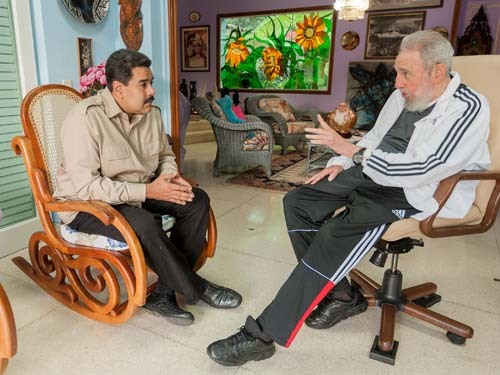
Fidel Castro has died at age 90. Worldwide, millions mourn the death of a historic figure, a worldwide symbol of rebellion, one who “stuck it to the man” until his last breath. A man who stood in the United Nations and told it like it is. A humanitarian who fought the human causes and sided with the smaller country against the odds.
By contrast, millions celebrate the death of a brutal dictator. To them, Castro was the genius hiding in the shadows, a mastermind who gave leaders across the globe step-by-step instructions on how to turn democracies into totalitarianism.
If something is truly amazing about Castro’s life, it is how he managed to keep these two impressions throughout the long years of his government.
When talking about Castro, his supporters will go great lengths in listing his efforts in Africa, and his solidarity in the fight against the oppressing empires. These same groups, however, ignore the Cuban colony-like treatment of Venezuelan resources throughout the last almost 20 years. Either by ignorance or by convenience, they forget to mention the installation of Cuban intelligence in Venezuelan and Nicaraguan army and government to ensure the correct use-and-abuse of power in order to protect the leftist-Cuban allegiant governments and interests.
People across the world mourn the loss of a champion for the small-guy, a man who had the respect and support of Nelson Mandela, no less. Indeed, the Comandante played (or pretended to) the role of a fighter against the Apartheid; he sent troops to South Africa during the rebellions and doctors throughout multiple crises in different continents. In whatever amount they could, Cuba’s humanitarian assistance was present throughout the past century.
However, little is said about the reasons why Castro had such need to be in the spotlight. In Africa, rebellions and revolutions became peripheral wars fought between the blocs of the Cold War. Amidst the U.S.-U.S.S.R. conflicts, Cuba was but a tertiary character, at most; a position that was just enough for a man who treated international policy as a curtain to cover his government’s own oppression.
To pretend the walls of Guantanamo are the only ones in the island to witness brutality and abuse is dishonest. The hunger in Havana and Varadero are not just a by-product of the US embargo.
To claim the military of an island in the Caribbean with a population under 10 million played a key role in African revolutions is just false.
Castristas will also claim the Cuban government will not hesitate to send doctors around the world in times of need. Yet, by the very act of sending them, these doctors are automatically taken as pawns of the Cuban regime, to be deployed, in some cases, as trading coins for other goods. Admittedly, many of these doctors see it as an opportunity to climb higher within their society and, in many cases, to access more resources.
A broken Cuban nation, unprepared to live in liberty and with huge inequality between the top 1/4th of the people and the rest. Corrupted, broken, and a beggar to other nations in the world, that is the legacy of Castro to his fellow Cubans. That was the price his people had to pay for the far Left to gain a hero.
A hero to failed causes that left immeasurable losses throughout the world. Stories of repression and dictatorship in the Middle East, of economic crises and brutality in South America. These are some things for which History will not absolve Castro.
But in our increasingly polarized world, a word of criticism to Castro should not be taken for an endorsement to his sworn enemy, the United States. Iraq and Libya may have suffered brutality under the yoke of Castro-supported leaders, but in those countries, the US has also played a major role. As it has in the poverty and struggles that Cuba has faced since the embargo.
Today seems fit to remember that the United States has acknowledged several murder attempts against Castro who, love it or hate it, was the leader of an independent nation. This cannot be ignored or just slipped during conversation. The unveiling of the US’ not-so-democratic face, the exposing of America’s wrongdoings, from Dwight Eisenhower until the start of Barack Obama’s administration (nine presidents and 13 wars included) is, irrefutably, also Castro’s legacy.
This extreme aversion and criticism of the United States was, obviously, one of Castro’s greatest appeals both in and out of Cuba. Even today, leaders across the world and common people will not hesitate to highlight his lifelong battle against the American hypocrisy, inhumanity, and flaws.
These are the people who love to bring the States as a counter-argument whenever Fidel is put to question. And these are the same people who refuse to criticize the wrongdoings and brutal failures of the Cuban revolution, or the Soviet Union, or the XXI Century socialism. It seems extremely difficult to ask either side in ‘U.S. v. Castro’ arguments to use the standards they use on themselves to judge the other party. And this is a problem.
In the end, Castro’s true legacy to the world is no more than a mirage of progress and fight, woven by assumptions of literacy equaling education, or alliance meaning solidarity. A so-called educated society that was never trusted to govern itself, or capable of starting its own national wealth; a friendly nation that forgot to aid its hungry brothers in Venezuela. Behind the mirage, the reality of failed promises, corruption, oppression, and wasted generations.
0 notes
Text
Thoughts post-2015 Elections
Resignation.
The Conservatives’ headquarters in Calgary had a stench of resignation from the moment the Atlantic results came out: the first 33 seats, all Liberals.
From that moment on, the people in the room focused on celebrating the small victories. And there were some of those. Most ridings in the city, in the province, official opposition, this and that minister.
In baseball, your team may get the most hits, most strikeouts, stolen bases… but if the other team gets more runs, you lose. And so it was the case on October 19. The Liberals had won the most seats.
Not that it was unexpected, either; the last polls had predicted a Liberal victory. What was really unexpected was the greatness of it. The boldest of predictions foresaw Trudeau achieving a minority government. By 10 pm, Calgarians saw the Liberal party achieve 184 seats, more than enough to form a majority.
Not even the media on-site predicted such a defeat for Stephen Harper. Most predicted a minority for Liberals, but there was a constant fuzz of people with “insider’s tips” that expected a Conservative minority government. That had ended as soon as Quebec’s results had come out: Liberals had swept NDP and Conservatives alike.
But once the now ex-Prime Minister took the stage, the air changed completely. The stench of resignation was taken by the scent of pride and liberation. It had been a long, exhausting campaign, and Stephen Harper seemed more than happy to be done with it. He did not seem too surprised to be defeated. In fact, he looked almost happy to have his party become the official opposition.
Official opposition.
Queer term. Where I come from, the opposition is imprisoned, accused of genocide (or regicide) plots, refused fair trial, refused media attention. No exaggeration, look it up.
But it is not a unique phenomenon. Leading parties in control of all branches of government, when threatened, tend to do oppress.
In Canada, to be the official opposition is almost an honour. Somehow, Canadian democracy found a way to make the second place quite an achievement. It is a great success for a democracy to fight the bipartisan germ, to whatever extent it may be. Thomas Mulcair wore with pride the pin of having established an official opposition. For now, the honour is all for Harper to bear.
The aftermath
No riots, no shots in the air, no parades. Did I just dream it, or a new party was chosen to lead the country? Some part of me feels strange, like there is something missing, something off. Maybe I have yet to understand that in a real democracy the parties are subjects, not verbs.
People on the streets are not panicked, they do not fear change. And if they do, they hide it very well. Neither do they expect the country to change overnight.
I lean to think it is a matter of emotional intelligence. Their fears lie underneath the calm provided by a balance of powers. Their expectations acknowledge the tardiness of change. No reason to panic or celebrate, not yet.
My country lacks this intelligence. Even though most know change is not allowed to come, fears and expectations run free. Some think a new ruling government will sell us to the United States. Others think that change will fix our economy miraculously.
And the winner is…
Justin Trudeau took the Liberal flag from the foothills, where it laid muddy. Today, the same flag waves atop the peak of Canadian democracy, where its colours resemble the maple leaf that tops the House of Commons and the Great North.
Trudeau does not need to quote his father Pierre’s “Just watch me;” the victory in 2015 sends the message loud and clear around the world. The hardest part is yet to come, and the young leader will have to demonstrate that his 43 years don’t prove too young for the job.
The victory also gives many opportunities to the Liberal party. No person could be better for the Libs to clean up their reputation in the West, where Pierre Elliott brings bad memories.
Now is the time for the Liberals and Justin to show that a united Canada stands stronger. Exactly one generation ago in the Trudeau family, the Prairies had to pay to strengthen Ontario and Quebec. Today, with a suffering oil and gas industry, Justin has the opportunity to show Alberta and Saskatchewan that they do matter for the Liberals. If the party convinces these provinces, two conservative strongholds, they could start a new dynasty.
0 notes
Text
As University of Regina grows its number of students, globalization also increases in its hallways.
The University of Regina is prepared to hit the 14,000 student mark in the Fall Census this October with its most diverse community to date.
Currently, you can see names from all around the world on students’ residence’s buzzers. The university believes its 2009-2014 Strategic Plan, which sought to increase its profile “regionally, nationally and internationally,” worked as planned.
According to Martha Mathurin, a life skills advisor at UR International in the University of Regina, diversification of campus enriches the learning experience, not only by taking new approaches inside the classrooms from people all around globe, but also by giving local students the opportunity to make contact and friendships with people from all over the world.
“An important international presence opens the door to the world for local students. It gives you a new perspective, opens up your thinking; you’re no longer confined to knowing only what is in your immediate space, you’re more curious about what is out there,” she said.
From 2009 to 2013, the University experienced a rise in international and exchange students by 76 per cent, almost double the growth of aboriginal student numbers during the same period, which was 42 per cent.
International students represented 12 per cent of the total of the university’s student body by fall 2013.
This increase has been helped by the International’s Office recruitment strategy and its focus in growing markets and the University’s membership in International Student Exchange Programs. ISEP serves as a link between the university and other institutions worldwide, and sets up direct agreements between partner institutions all across the globe.
Other programs like Sciences Without Borders, an agreement between the governments of Canada and Brazil, have also helped university’s international student numbers to go higher. The program allows over 12,000 Brazilian students to continue their learning process throughout the country.
“It was really cool to get to know people from all kinds of cultures and backgrounds. It helped me open my mind”, agreed Josef Sonderegger, a former exchange student from Austria.
When asked if he thought people in the university were prepared to relate with international students, he said that “the whole welcoming process was very clear and people were very helpful. For someone with university experience like me, it even seemed a bit overprotective.”
Sonderegger said his horizons were expanded by every person he met. “I never had the chance to share a flat with people from China or Nigeria before,” he said.
0 notes
Text
After 15 years of “love” Revolution, Venezuela climbs in world’s violence and corruption rankings.
Hugo Chávez started the Socialist Revolution in Venezuela under the promise of bringing the oil wealth to the people, assuring that all the country’s problems (mostly economical) would be solved. 15 years later, not only has the economic crisis deepened, but the tropical country has seen itself climb to the top in two of the most non-wanted charts: corruption and violence.
The country presents five cities in Business Insider’s “50 most violent cities in the world”, only beaten by Brazil (15), Mexico (8), and Colombia (6), tied with the United States (however, the Venezuelan cities are higher above the chart). Caracas, the country’s capital, is third in such ranking, presenting over 118.89 homicides per 100.000 residents; corruption in the police institutions, violent thefts and drug wars being the reasons for most of these homicides. Not surprisingly, social insecurity has been the number one concern for Venezuelans in the last six years, according to Venezuelan Center of Education for Human Rights, having raised the homicide numbers from 12.257 per year to over nineteen thousand in those six years.
During fifteen years of Revolution, which its leader focused on calling peaceful, full of love and selfless, Venezuela has become not only the main bridge for drugs between Colombia and South America to the world, given its geographical condition, but also the most corrupt country in Latin America, according to German NGO International Transparency.
Since 1999, Venezuela has been steady as one of the most corrupt countries in the world, regardless of Chávez’ alleged “efforts” to stop it short, creating several institutions (led by members of his Cabinet), all which ended with the same poor result. However, the deceased leader of the Revolution, who managed to will 2/3 of the GDP, was never charged for any corruption charges.
Was it better before Chávez?
Before the beginning of the Revolution, the country was submerged under corruption and an economic crisis that led to the fall of the previous governments. In 1995, Venezuela was found sixth most corrupt of all 41 countries that International Transparency had studied that year. Nevertheless, while nowadays’ corruption scandals reach the billions of dollars, it is important to notice that in 1993 the Supreme Court took the president, Carlos Andrés Pérez off his office for a corruption scandal of US $200,000, the highest strike against corruption in the history of the nation.
Only in 2007, Guido Antonini Wilson, a Venezuelan-American entrepreneur related to important Venezuelan politicians, was found in Argentina with US $800,000 cash during a diplomatic trip in representation of the Venezuelan government. Immediately following, many GNO’s accused several members of the government of being related to the case and Wilson disappeared of the country. Accused politicians are yet to face trial.
As for security, the nation marked its pre-Chávez top in 1999, year where the president only took office and focused on governmental organization, reaching 4550 homicides in the country, almost a quarter of the latest number. What’s more, while nowadays over 90% of the murders go unsolved (according to Spanish news agency EFE), the year average of unsolved crimes in the decade of the 1990s marked barely over 40%, despite the country’s massive investment in weapons and raise in police and military salaries.
0 notes
Text
6 reasons why Spain should be your next destination.
Although it might be more popular on the news because of the economic crisis, inefficient government and sports success, there will always be a bit of Spain that will catch you regardless of what you look for on your vacations. The warmth of the people, Iberian food and plurality of their culture make the “bull-shaped country” the destination for almost 60 million people every year, which allowed it to be the fifth country with most profit from tourism in 2010 ($81.1 billion). But, what is that “more” from Spain than what catches the eye?
1) Good food anywhere you look.
Regardless of the region, you will have a wide selection of meats, seafood and cheeses. Street-side restaurants are very common, and the classic potato omelet, gazpachos and wide selection of hams (some of them considered best in the world) are available almost in every corner. Spain hosts the best restaurants in the last decade, El celler de Can Roca and El Bulli, merit that only crowns the wonderful reputation that Spanish gastronomy has, and which will surely be reassured bite after bite anywhere you eat in Spain.
2) Social pluralism meets cordiality.
Though news might paint a picture of social disputes and fights, Spain society, while incredibly plural, remains extremely friendly. A country that holds a different culture in almost every autonomic community (Spanish equivalent to a province), being Basque and Catalan the most notorious, assures that anywhere you are you will be surrounded by people with major differences, some even with a different first language, and yet you will rarely notice that one person treats the other with discrimination or prejudice. This diversity in culture allows also many wonderful traditional celebrations, foods and traditions compressed in a considerably small territory.
3) Nature for all tastes.
Whether you enjoy going to the beach, hiking on the desert, or even do some fun-skiing, if you are an outdoors person, Spain has something for you. While having almost 5 thousand kilometers of coast with the Mediterranean sea (paradisiacal islands included), the Iberian nation also offers million-years old forests (Garajonay), volcanic mountains perfect for light skiing or hiking (The Pyrenees), and even swamps that allow a close touch to nature. Big green parks are found in the big cities and are always in good state, reflecting the importance of nature for Spanish society.
4) Arts and culture are everywhere.
Not only you are likely to find someone painting cartoons or playing music out on the streets, but you will also have museums and countless works of art waiting for your visit. From the Guggenheim Museum in Bilbao (an architectural work of art in itself) to the Parc Güell in Barcelona, Spain has big collections of arts and showing them to as many people as they can is a big priority, for which many museums have free hours of entrance, free tickets for students, and many of the architectural works of art do not charge entrance fee. Goya, Velázquez and Dalí are waiting for your visit, hurry up!
5) Sports are part of life.
While the national soccer team, La Roja (the red one, for the colour of their uniform), has won every major tournament it has participated in since 2008, and the basketball team is the only one to make resistance to United States’ “new Dream Team”, sports are one of the most important things in big part of the Spanish society. With soccer as the most popular sport on the country, the national league is one of the most famous and attractive in the world, being the Clásicos (matches between Real Madrid and Barcelona) one of the most televised events in the world in the last decade. Former Real Madrid player Jorge Valdano summed up “Soccer is the most serious thing among the least serious things”, and it sums up how Spanish see sports in their life.
6) Parties and festivals like nowhere else.
Spanish people are different, and their celebrations cannot be compared to those of any other country. Throwing tomatoes at each other during La Tomatina or being chased by bulls during Las corridas de los Sanfermines in Pamplona are just a glimpse of how Spanish celebrate and have fun as an open community, and leisure is just as important to their life as anything else, which reflects in a very alive, joyful and happy community with open arms and good will to share its fun with whomever wants to visit.
0 notes
Text
Inside U of R Confessions.
Universities all across North America have joined the trend of having a page where students can share comments anonymously. Started only last year, “University of Regina Confessions” Facebook page has reached almost 10,000 likes – that represents over two thirds of university’s enrolment. It is one of students’ favourite means of procrastination, but also, according to one of the page’s administrators and founders, it helps students keep updated with what happens on campus.
However, the page has become for some people more than giggles. It has become an outlet for students to say what they like, complaints, even serious issues they’ve had on campus. Even though it is very easy to participate on the page (either posting or commenting), the internal work is a bit more difficult.
One of the page’s administrators and founders, who decided to remain anonymous, commented on the origin of the page as “U of R didn’t really have a confessions page so I was thinking that I should create one, and I didn’t think that it would go this far as it is today.”
Some comments are posted as soon as possible. Others, heavier in content, are not published immediately because the admins think they should wait in case the author chooses not to share it. The page also has for a rule not to publish last names, instead they choose to leave just initials or broad descriptions.
The page also tries to help some of the people that send a confession. It has happened that the material on the post leads the admins to redirect it to Counseling Services instead of posting the comment. On this, the admin says “I always value professional counseling over a confessions outlet, but the good part of sending a confession is that a lot of people are there to help you through it without knowing who you are.”
Not only with counseling, the admins also try to keep the material on the page as harmless for people as possible. If the content on a comment has personal details of someone’s life other than the author, the post is discarded. Material that risks the reputation of a professor or someone who works on campus is avoided by the admins as well.
The page, however popular among students, is mostly seen as a funny hobby for the administrators. The admins, all students at the university, try not to put the page as a priority in their lives, however they try to keep the page in mind and help whenever they can. Also, admins try to respect the trust participants give them by not looking into their Facebook profiles unless they participate frequently. Because of this, only people trusted by admins may become an administrator.
But Confessions has not only attracted the attention of students. The page has received and rejected offers for advertising products, mainly because the admins don’t think that is what students are looking for on their page. Offices in university have also looked carefully at the page. Campus Security has been following the page since it came to existence, and they have commented on several posts.
Others in university are more skeptical towards the page. According to the admin, faculties like Nursing or Education have warned students of posting things they might regret later on. However, the page is willing to remove material already posted if someone asks for it, as the admins don’t think its purpose is to jeopardize anyone’s reputation.
The admin’s favourite kind of confessions are the funny ones, and one in specific that came to her mind was “the one with laser pointing from the North tower to the South tower, and the person dodging.” She thinks confessions that are more unique in a particular way have greater chances of being posted.
The admin sees the page as a pioneer on campus and its success has caused other pages like “U of R Snaps” and “Stuff U of R Professors say”. She doesn’t know what will happen after the administrators graduate, however she admits there is something big under development for the near future.
0 notes
Text
Hungary - Part II of Poland, Hungary and Austria tour.
Hello everyone! It's been a while, but I finally found the energy to tell you now about Budapest, so let's get to it! From Krakow we had to make a scale in Warsaw and take a flight to Budapest, where we would spend the next 3 days...
(Sad story: Wizz Air had the craziest way to measure my bag and force me to register it - while it actually fitted as larg cabin, forcing me to pay twice as much as the flight ticket...)
Budapest:
To be completely honest, Budapest was included as part of the trip for the sole reason of being in the way from Poland and Austria, but what was expected to be a "let's make the best of it" scale turned out as one of the most beautiful cities with the most wonderful illumination that I have ever seen. The gang (minus Cap'n "I have so much energy" Cook - who chose to take a nap) and I decided to go for a night walk on our first night, starting in Andrássy út all the way to the humongous St. Stephen's Cathedral (to which I'll come back later), arriving then to the Chain Bridge, where our jaws hit the ground by looking at the wonderful Danube, the incredibly illuminated Chain Bridge and the astonishing Buda Hill, topped with the Buda Palace and the Fisherman's Bastion. Amazed by all this beauty, we couldn't help but going all the way to the top and admiring the city at night, as well as some insane illumination (specially at the Fisherman's Bastion). On this exciting night we also found the most mystical, weird tasting drink, which is surely a Voldemort favourite: Unicum, Hungarian version of Jägermeister with a bit more sour punch but that is totally made up with its name, a popourri of imaginary creatures and a body action that I will not develop any further on this blog. Excited as we were, but also really exhausted from a long day, we thought it was best to head back and call it the night.

That night though, some of the people in the house learned that a high chair can be a really scary thing, others learned that it is valuable prank material.
The next day, and after a short power jog with the Cap'n, the gang decided to walk our way to the Budapest citadel, which was not such an incredible sight as much as it was a great spot for seeing the city from above, however it did offer cheap souvenirs (and for Real Madrid fans, a shop dedicated to Ferenc Puskas!) and other what-nots. However, you could still feel that most of us were still asleep and so we chose to go for a coffee before anyone would start cutting heads off. Given that we were on the road and hadn't seen the Buda Hill during the day (also since we noticed the night before that there was a café at the Bastion itself) we figured it was worth going all the way and having a little booster break. Some had soups, others coffee, others water, but by the end we were all in a much better mood and willing to spend more time with each other.
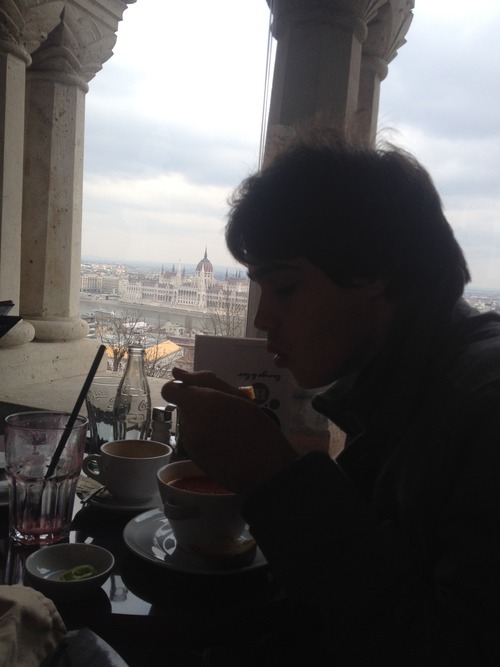
...Yeah, that was our view. And yeah, that soup made the Larcho feel a lot better.
Once our break was over, we decided to surround the city, buy some negros (open this link before you call me names!), get all the way to Margaret Island and walk down from Pest towards the Hungarian Parliament, hands down one of the most beautiful buildings I have ever seen and (in a more objective description) one of the biggest Parliament houses in the world. Sadly, we were not able to take the tour inside the Parliament, but the view from outside is more than worth watching.

Guys, don't think of us as lazy people, these cities are HUGE and city travelling is tricky, as you can walk 15 kilometers and not notice it or be out on the road for +8 hours and still feel like you haven't done anything all day, so as we walked past the Parliament Building - and after finding out that the United States embassy in Hungary is right in front of the Soviet Monument Liberty Square, (boy, never say you've seen it all...), we felt like heading back to the apartment for a short break, but only after entering one place...
St. Stephen's Cathedral: I have been to Sacre Cœur, Notre Dame, St. Denis, Sagrada Familia, La Almudena, Westminster Abbey, the Kölner Dom and Munich's Frauenkirche, and I wouldn't lie if I said that this church is, by far, the most beautiful and ostentatious church I have visited in my life. From the outside, a massive cathedral with it's dome, somewhat square structure on the front with a round back, and absurd dimensions. From the inside, the most opulent and overwhelming decoration, with all colours of marble known by man, so much gold and paintings that you just can't stop looking, and the creepy St. Stephen's hand, which is held as a relic. This church, without a doubt, will remind you of the magnitude and wealth of the K.K. Empire.
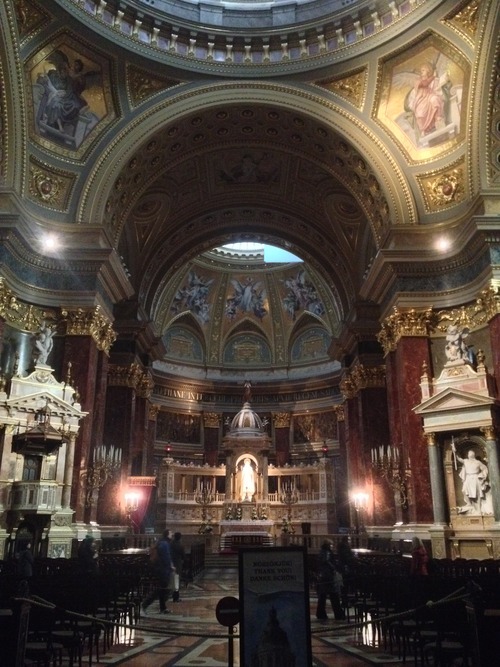
Now, after visiting the St. Stephen's Basilica, we felt like we deserved a break. Some took it for browsing touristic places, others for napping, but us the guys took it for going to the Szechenyi Baths and Pool, and boy did we make the right call. Countless baths with warm water, relaxing fountains, a whirlpool thingy, guystyle sightseeing and a good convo were more than necessary and deserved, and after a while, we felt as newborn babies ready to live some. I can't illustrate the baths as I didn't bring my phone with me, so I'm gonna have to ask you to google it if you feel like adding some images to my experience.
After that relaxing time, it was time to meet the girls again and head out for dinner... oh boy dinner. I don't need to say too much about that meal, so in summary, I will just say that local Hungarian cuisine is incredibly good and that you should, under no circumstances, bite a Hungarian paprika half, especially if you haven't had water served. Also, I send a very warm hug to that cool waiter that spend more time asking where we were from than pointing the way to th bathroom. I'm sorry for being that rude, but I was just really hurried.
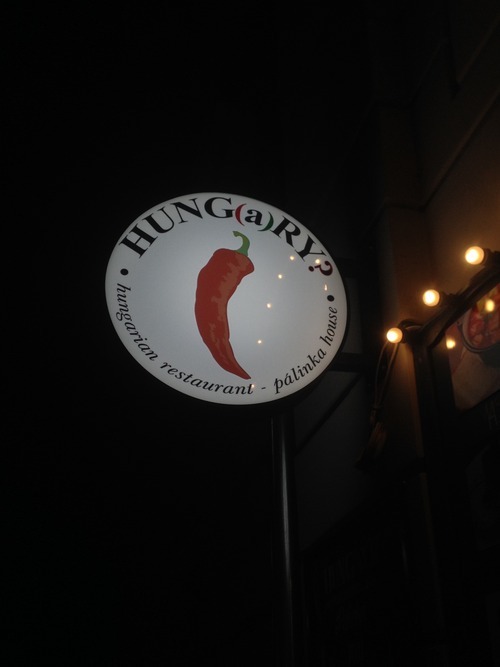
-no idea what "pálinka" means.
So, after that full dinner experience, we hit the bed and bid our farewells to the Aussie man, whom we'd meet later in Austria. The next day, we got ready to hit it and made our way to the Grand Market in Budapest, going past several beautiful buildings, modern market streets (where we saw Hard Rock Café, for example), very friendly people and were surrounded by a great vibe. Going to the market was to all of us a wonderful experience mostly because we enjoy the whole market thing - smells, weird foods, interesting drinks and desserts, talking to people, but this particular market had something else: clothing (some even traditional Hungarian), a food court with some interesting and cheap offers, souvenirs, a splendid infrastructure and so many local things. Budapest Great Market Hall is, without a doubt, a must visit in the city.
The rest of the day was walking our way around the city, seeing some very interesting streets and squeezing the very last drops of a city that charmed us, not only with a beauty that we truly didn't expect, but also with an incredibly relaxing and welcoming vibe. Budapest, you are truly one beautiful son of a b*tch.

Hungarian enough?
Well, this was our Hungarian part of the trip, a great experience with the incredible company. Now the last part of the trip, Austria, will come with a whole new set of stories and picutres.
See you guys soon!
0 notes
Text
Poland, Hungary and Austria (part I).
Hello everyone! Sorry for taking so long in posting about one of the most amazing trips I have done so far, but I think the amount of experiences and moments demanded for a time of processing. Now that it's ready to be put in words, let us begin!
So last week Cap'n Cook, The Larcho Macho, Brave, the Finn Bullet and myself took a trip to Poland, Hungary and Austria, but it is safe to say that the adventure started when driving our way to Paris. At 2:00 am, with not much sleep, rain, crazy truckers, an Aussie who is used to driving on the other side of the road, and not too much time for mistakes as we could have missed our flight, Mr. Larcho took the challenge and mastered it, adding to his CV having driven to l'Arc de Triomphe in the early morning while under tons of stress. Cheers to you, mate!
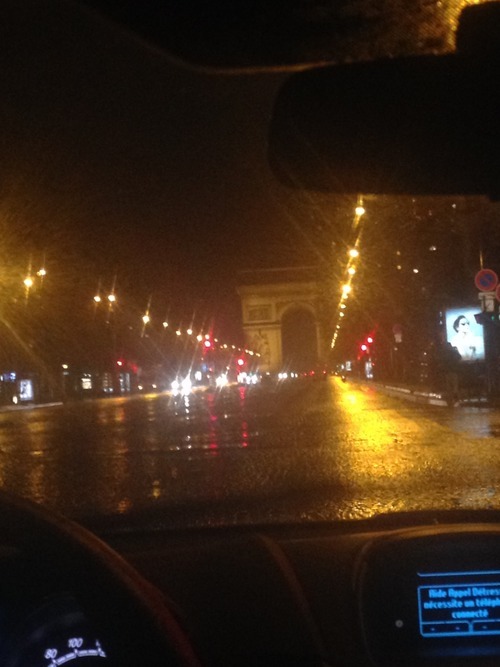
However close to the time, we made it to Paris Beauvais and got our flight to our first destination:
Warsaw.
A city where we only had around 12 hours, but that needed much less to catch us. The city centre, with its Golden Terraces (and respective Hard Rock Café, an Ode to the West) as the biggest demonstration that, though once a Soviet Nation, capitalism has set foot strongly and is very much decided to change the face of the capital of the Polish nation. A mixture of amazing modern architecture that even New York City would dream having among its skyline, with square, small block buildings that remind of the Soviet ugly practicality, surround the true charm of Warzawa: a colourful and lovely Old City, where going to the top of the bell tower is a must as you can and have a full view of a city and the Vistula River. The Museum of Frederic Chopin, the Palace of Culture and Science, several churches, a wonderful lighting system that changes the face of the city at night, and a scary-to-hear language (don't worry, everyone speaks English!) are just some of the things that you will find in Warsaw and that will challenge your mind to asking itself if the culture is that of a Western or an Eastern society; truth is, Poland is the perfect point of transition from one culture to another.

But the trip was just beginning and Warsaw was a bridge between Paris and our next Polish destination, where we would spend some more time:
Krakow:
After taking the smelliest, dirtiest, most uncomfortable night train, we arrived to Krakow and, once we were prepared, convinced we had not contracted a disease, and had enough energy to carry on, we took the bus to (by far) the most touching visit in my life:
Auschwitz-Birkenau:
A true eye-opener of how far can evil and need drive a society and how much went on in the Concentration Camps. Personally, I have dedicated a fair amount of study to the Holocaust and WWII, and I can safely say that, no matter how much you have read of it, how many movies you've seen, or how many "facts" you know of it, Auschwitz-Birkenau will most definitely transmit you a lot more than just information. The tragedy, suffering and pain seems to have rooted on that piece of hell on Earth and the tour guide (much recommended, though admission is free if you choose to enter by yourself) will transport you and help you picture how day-to-day was during those dark days. The guide will also show you the room where the first killings with Zyklon-B took place, a rebuilt shower and ovens, the rooms, washrooms and fields where the Jewish and other prisoners had to work (and, most of them die). Overall, it is a visit that will definitely put your feet back on the ground and fear the power of one leader or ideas.
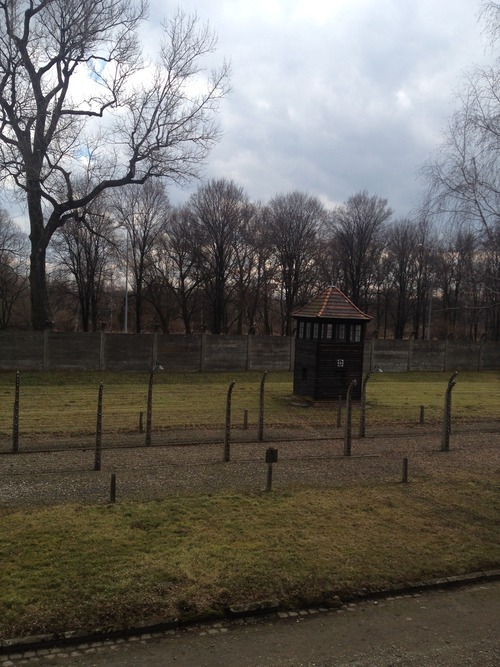
After Auschwitz, we returned to Krakow and slept finally after 2 days of non-stop travel. So the next day, feeling fresh and finally rested, we woke up to walk around the city of Krakow. As it was also the birthday of the Larcho Macho, the day was full of good vibes and jokes. Krakow, a historic city that transmits an incredible, almost enervating calm, allowed us to have a moment of tranquility and enjoy wonderful sights, visit its medieval underground town, have some good talks, see some churches (including the one John Paul II was bishop of, along with his residence), and see some castles. There is a certain je ne sais quoi in Krakow that made me remember Bruges (one of my all-time favourite cities), and I would much rather enjoy and cherish that emotion than to label what it was. Unlike Warsaw, however, Krakow does not have such a strong combination of two completely different societies such as Eastern and Western, as it barely even has tall buildings or ugly Soviet blocks, but rather it is full with old, charming small buildings, street-side shops and cafés, and many carriages that give it another feeling. Krakow is, in other words, a place that connects a lot more with your spirit than with your feelings.
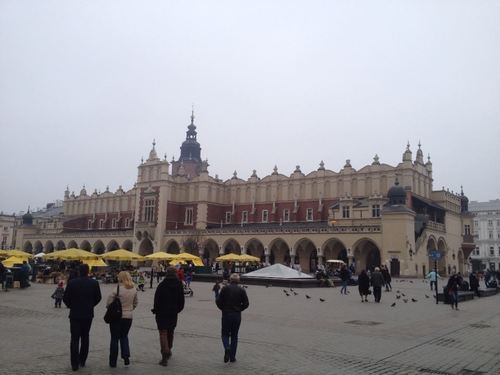
Well, I think it is only fair to stop here for today and tell you about Budapest and Austria (and another anecdote in Paris) some other day. I hope you enjoyed Poland as much as I did and rest as much as I did not during my visit to the country that represented, to me, the biggest potpourri of considerably different cultures.
All the best and until the next time!
0 notes
Text
Paris with wonderful ladies... And getting ready to leave again!
Salut tout le monde!
Last weekend was one of the happiest moments of the year (so far) as I got to meet again with 5 of the most wonderful women I have come across in Canada, and no place would be better than Paris to make the reunion an unforgettable moment. So this week I want to talk you, not only about a trip to Paris (which normally would have a post by itself) but also about The best of 2014 International Love Reunion.
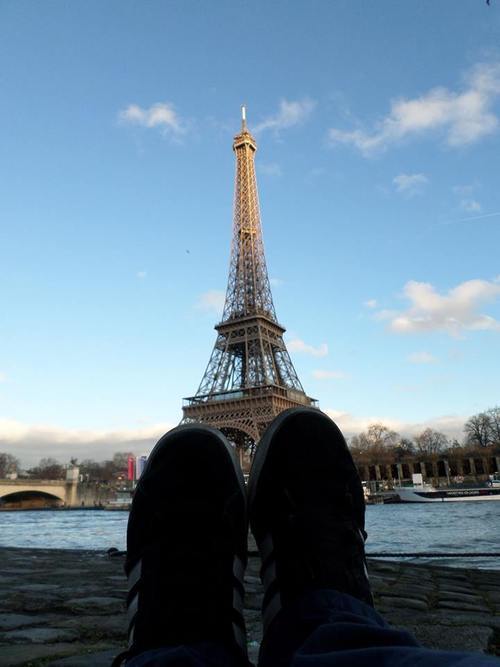
On Friday morning, Cap'n Cook and I took our almost dead bodies all the way to the train station at 5 (or somewhere around) and took a train to Paris, so that around 7:00 we were in the city and around 9:00, the faces of 2 British, 2 Finnish and a German illuminated my morning. Exhausted as I was, the excitement of being in one of my all-time favorite cities with some of my all-time favorite people gave an extra energy that allowed me to be at least partially alive all throughout the day. Before describing the trip, I want you to dedicate a minute and thank Cap'n Cook for performing one of the best falls Paris has ever seen, hitting a post in a cartoon-like fashion had never been so funny.
Traveler's tip: Le Village Hostel, located one block away from Sacre Cœur and another one away from the train station Anvers, offers a great accommodation for those travelling on a budget. Great service, clean rooms and washrooms, breakfast included and beers sold at the lobby - what else could you ask for?
So off we go! Paris, la ville Lumière, open to us since early in the morning. First stop: Arc de Triomphe. Majestic monument, worth watching from any angle, also provides a very good view to the city from the top, showing the streets of the city spread along countless historic sites. Once you're at the top, look down and have some fun watching cars getting stuck on the roundabout and struggling to avoid crashing someone - always a good laugh. Not everything was good at l'Arc, as my phone fell and went black for the whole weekend, so I was not able to take many photos. While it was falling, however, it somehow took this photo, which I call "Portrait of a technologic suicide":

After the Arc, we fell it was only logic to go down the Champs Elysées to the Louvre, however the Finn sis left us as they had a national duty to see their Hockey team lose to Sweden on the Sochi semifinals (only to later lose to Canada!). So the rest of us headed to the Louvre, and though we did not enter, it was anything but a cheap visit (always check the price of the pops/beverages before ordering, or you might end up drinking a 8.5 € Coke). So, once our stomachs were full and our wallets hurt, it was time to go to... the Eiffel Tower!
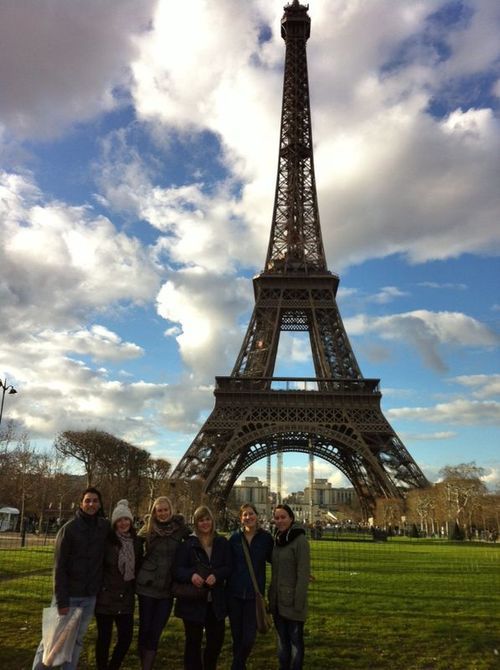
Words might not be necessary to describe the imposing presence of Napoleon's phallus, however let's try. Once we were there, we rejoined the Finns and together the greatness of the place helped us feel a bit claustrophobic due to the amount of people, small due to the size of the monument, and very grateful for being together after long time of not seeing each other. As some were not interested, others refused to do the never-ending line and those who already had been up there were not particularly interested in going up again, we just hit Champ de Mars onwards to l'École Militaire and Mur de la Paix.
Not all details are necessary, so let's just move on to Friday night. Dinner with the girls very close to the famous Chat Noir and Moulin Rouge. At night, and in Montmartre, beware of the odd proposals that you will certainly receive: sex, drugs... among others.
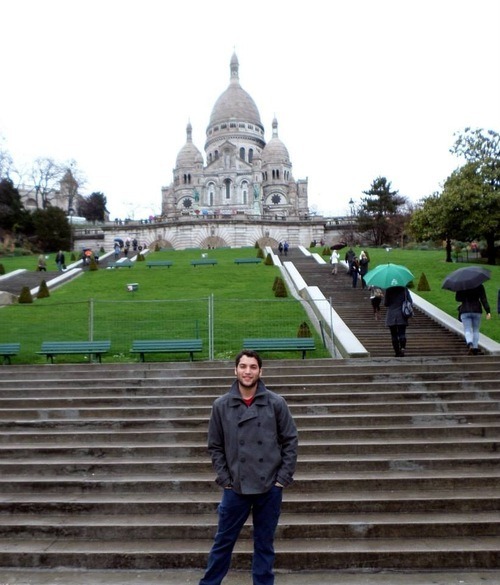
Saturday was the day of Sacre Cœur, Jardins de Luxembourg, Panthéon, Tour Montparnasse and a number of bridges, from the famous bridge where this scene from Inception was filmed (where you can see the Statue of Liberty of Paris), to a walk along the Seine and Centre Pompidou, Cité de l’Architecture and other sites until coming to the Pont de l’Alma, where a replica of the flame of the Statue of Liberty is found and under which Princess Diana died.
Later on that day, and guided by a Parisian, we found a very nice place next to l’École Militaire where for a Parisian-low price a fried duck with sides, dessert and beer was enjoyed. Beer... that gateway drink that most of the times leads to a great night, including this one. From cider walking Champ de Mars via Tour Eiffel to having a kir Sauvignon and a Erdinger, until finally having Leffes in the lobby of Le Village with a Spanish guy that claimed to work for the anti-mafia department of the French Police, who had no problems telling us how AIDS, flu and colds were tools of WHO to take our money... Hostel stories.
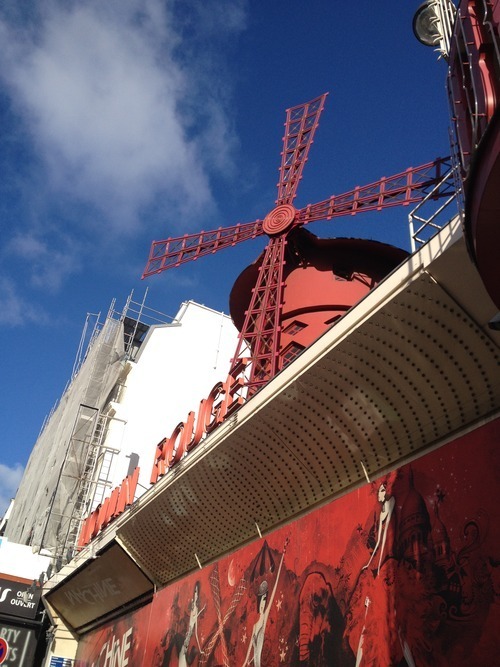
Sunday started with the visit to les catacombes, a historic site where (personally) the waiting line aims to expect a lot more than it actually is. Keep in mind you’re visiting catacombs, and as so you will see countless bones, some carvings on walls, dwells where the miners used to clean themselves, and very old rocks. However, it is a very connecting experience to a city where not everything is beautiful and elegant.
Sadly, shortly after the Catacombs it was time to say goodbye to Sarah, Helen and Jade, three absolutely wonderful girls that I had the luck to meet in Canada and that visited me in France, people to whom I wish all the best and to see very very soon. Also, Saturday was a day to visit the Musée du Louvre with Cap'n Cook, a full and wonderful experience where we saw the Venus de Milo, Mona Lisa, Liberty guiding the people and countless others.
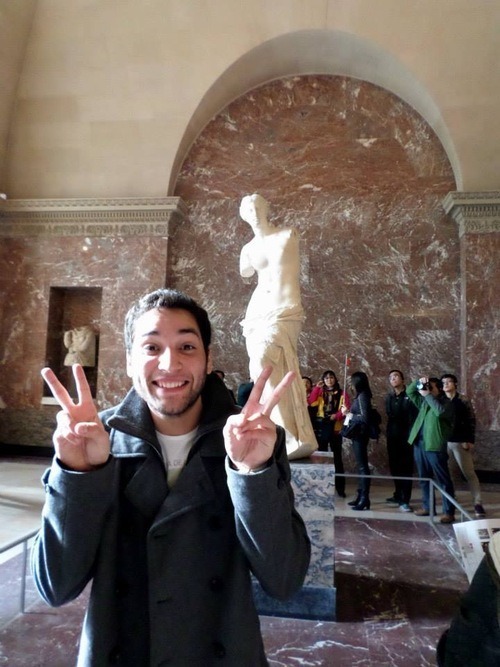
Sunday ended with a great dinner right behind Notre Dame, followed by a splendid night walk with the Finns and Cap’n Cook next to the Seine all the way to the Louvre, and then Champs Elysées, where a very nice Colombian girl prepared some crêpes au chocolat/sauce caramel for us right before carrying on a walk to L’Arc de Triomphe... until later leaving to the hostel for our last night.
As the night started, our trip ended and the nostalgia for good times with wonderful friends started taking over, however the hope of meeting again (hopefully very soon!) and the expectancy for the next trip helps overcome the sadness.
Well, that was Paris with my girls. Now it is time to tell you that this weekend starts a 10 day trip to... Nope! Not telling... Just kidding! It is safe to let you all know that on Friday the trip to Poland, Hungary and Austria begins! Hopefully it will be a wonderful time in promising cities.
Au revoir!
1 note
·
View note
Text
Trip to Normandy.
Good day everyone!
Last Friday, some of my friends and I decided to spend the weekend on a trip through Normandy, north of France. Though most have heard from it only because of Omaha Beach (unarguably a sight by itself), it is definitely not the only important thing to visit - even less the most beautiful point in Normandy. Amazing coastlines, cliffs, towns, churches (oh, so many churches!), and nature are some of the things you can expect from these wonderful regions (as Normandy is administratively divided in Haute and Basse). Before telling you about the cities and picturesque sights, there are three pieces of advice you need:
Travel with friends: Everyone says coexistence is a challenge when travelling in groups, and though it might be true, if you are lucky you will find an amazing team that will multiply the adventure and turn a nice trip into an incredible experience. Also, car rentals, accommodations and meal expenses come to a very low cost when you share them with other people
Plan ahead but don't go too far: when it comes to travelling (specially in groups), it is very important to have some essentials: what to visit, where to stay, how to get there... It is not the hardest thing, but it is essential to keep the trip marching in a good pace and not missing out on anything. However, keep your timetable flexible so that the unexpected can happen. At the end, those things might be the memories you will cherish the most.
Get ready to fight the conditions: rain, wind, cold water, lack of services... You never know what will come across so have a pair of comfortable shoes, a jacket and sunglasses around you at all times. In a place like Normandy, with windy and cold beaches, all 3 will most definitely come in hand.
That being said, it is time to explore Normandy...
Omaha Beach:
First stop of the trip. After about 2 hours of drive from Rennes, we arrived to the famous place where the Normandy Landings took place. The beach, with its monuments and mystic, will inevitably force your mind to imagine the moment and, whether you picture it in black and white, or as in Saving Private Ryan's first scene, your body will feel the energy and the power of one of the most important places in recent history. Personally, it was inevitable to ask myself one question: what would the world be had this coast not been taken?
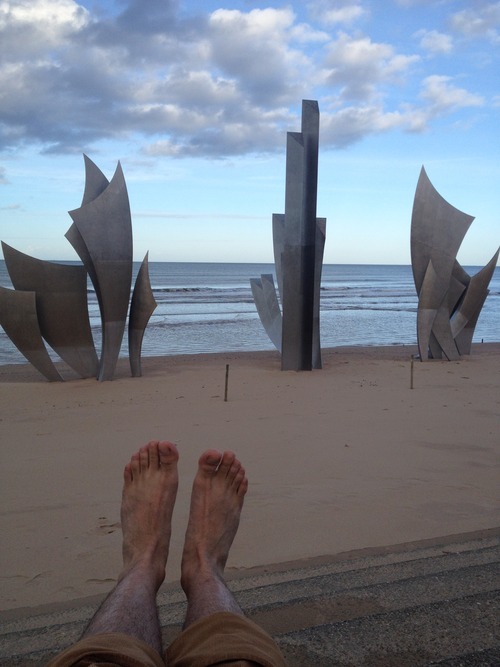
Near the coast itself you will find some houses, some churches, a considerable number of cemeteries to honor the fallen and countless stars and stripes, which is particularly interesting once you get in touch with the French society and feel their characteristic nationalism.
Caen:
Second stop of the trip and first night spent. If there was a word to describe the place would be beautiful, but history and peacefulness would be close in the race. Caen, a city impregnated by the Middle Ages, is rich in churches, walking streets and the colour beige, which adds a certain je ne sais quoi to the visit. All of this topped by the Château de Caen and the church of Saint Étienne, where the remains of William the Conqueror rest.

Although we spent only a number of hours in the city, Caen is definitely a place I would recommend, as I'm sure we could have spent a couple of days and still find interesting spots around the city. Also, inside the Castle, there is the Museum of History, where you can find very interesting articles from different moments (from 5000 a.C to the industrialization of France). If you like history and relaxing, Caen is a must. If you don't... it still is.
Trouville-sur-Mer:
Definitely a happy accident during the trip. Started off as just a coastal place to go during Saturday and ended being an extremely pleasant surprise. The town, while not offering great historic sites or majestic building (not that we came across, anyways), does offer a costanera with several restaurants and cafés, a lovely fisherman's market with extremely friendly people, and a shore which will definitely give you a sense of peace. Extremely windy: if you like surfing, kite-surfing, windsurfing or any other kind of surfing, I assume this would be a good place to practice the sport.
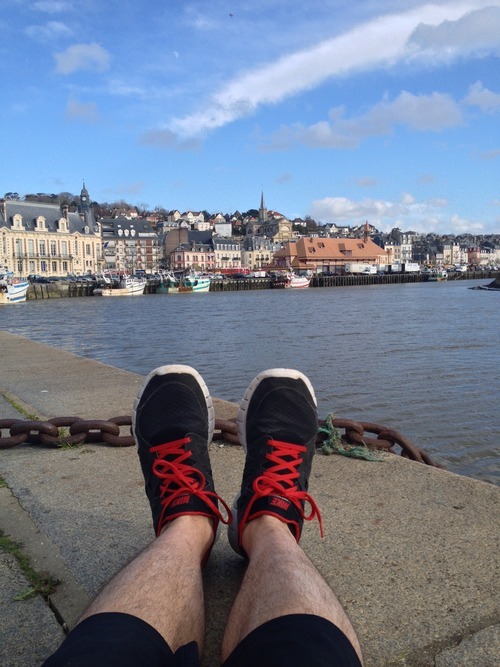
If you survived seeing my ghost-pale legs, allow us to carry on...
Rouen:
A lovely, lovely place, our second-to-last stop during the trip. If you haven't heard of this city, go pick up your history book and re-read the Hundred Year's War section. Just kidding, I know you all recognize the name of the town where Joan of Arc was BBQ-ed. The city, as Caen, has its Catholic history deeply rooted, and so you will find countless churches -one more beautiful than the other, however the Église Saint-Maclou
stands out, both during day and nighttime, as it presents several layers in its structure, which you can notice more with the illumination during the night.
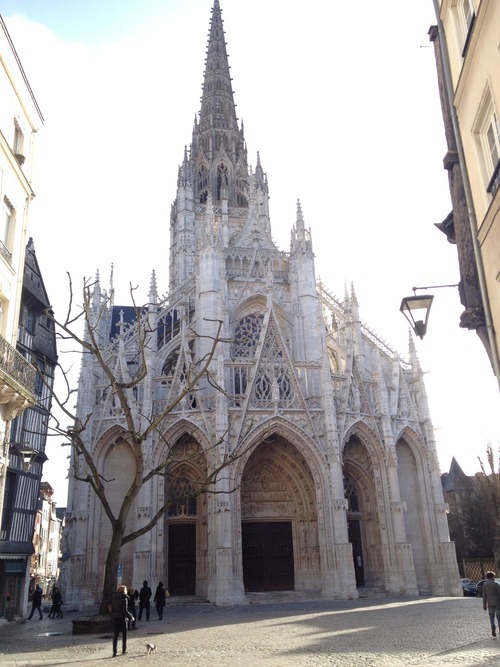
Rouen, crossed by the Seine just as Paris, surprised us with a market on Sunday, where we were able to feel some more friendly atmosphere, aromas and have a good snack. However, after a fun night walk, a good hotel party, recovery breakfast and daytime sightseeing, it was time to pack our bags and set course to the last destination before heading back to Rennes...
Étretat:
The absolute cherry on the cake. Had we planned a way to end our trip, it would have not ended as awesome as it did. (Assuming you haven't peeked before reading this) The sight could be described as a round coast caused by erosion, leaving a rocky beach and two cliffs. Yet, such description would need a lot more poetry to be able to describe the magnificence that was in front of us. We were lucky enough to have great weather throughout all the trip, and it came particularly important at this stop, where we had to walk our way to the top of the cliff, with the mere challenge of surviving brutal wind, and once there, the most beautiful landscape laid right before our eyes. By far one of the most wonderful things I have seen in my life (maybe tied with Iguazu Falls). Words and pictures are not enough to describe the place, but since I already tried words...
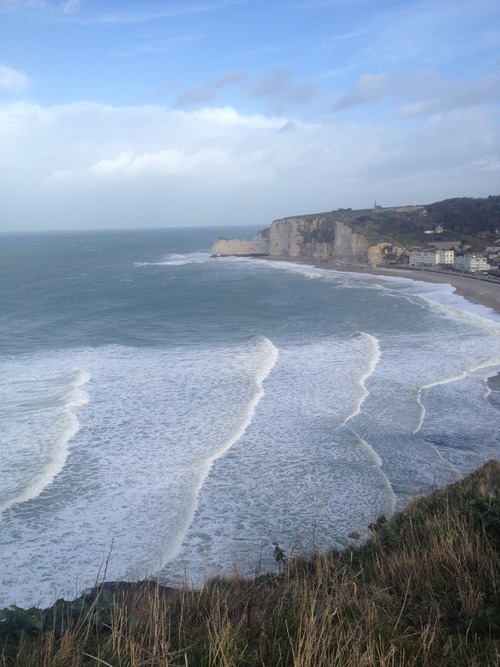
With Étretat enjoyed, it was about time to return to Rennes, and after a 4-hour ride made by the "Driving Dream Team" Larcho Macho and Aron (two awesome members of the group), we made it back safe and sound to Rennes.
Other than the sights, the trip was full with energy, fun memories and a great coexistence within the group. Oh, by the way, renting cars and hotel is the easiest thing you could possibly do in bureaucratic France. Most definitely a recommended way to travel through the country.
That was our weekend, and if you think this was a long post, just wait until we return from our trip to...
Nope, not telling.
À bientôt!
1 note
·
View note
Text
Sick, classes, and planning trips.
Salut tout le monde!
Last week was definitely not the best so far as classes started becoming routinary, weather was gray and depressing and, to top it all, I caught a bugging cold - only made worse by my friendnemy, the heater. So it was a week plagued by pills, bedtime and no alcohol not going out very much. However, not going out doesn’t mean you can’t have fun. Though I was half-dead during classes and was unable to walk to the uni or go to the gym, being sick made a perfect excuse to rewatch Breaking Bad, some movies, cooking pancakes (great pancakes, if I may), and planning the upcoming trips, but more on that later…
The few times out, when not in classes or out for errands, were very pleasant. First, a night out at the theatre watching casse-tête chinois, a typical yet very funny French movie filmed almost entirely in New York. Euro fact: when at the movies, you can ask for sweet pop-corn. Pretty good and doesn’t make you thirsty, which is good news when the 50cl pop costs 2.70€. To overcome a regular week, nothing better than a great Saturday. Started with a visit to the Marché des Lices, where fresh fruits and veggies, local bread and cold cuts, sweets and other sorts of local products transform the air into a dance of smells and aromas that, if well doesn’t heal the body, definitely makes you feel a lot better and enjoy your time. After over an hour of exploring the market, me and my friends took the time to go and visit a Chinese market at the Ópera (not the Oprah, by the way), which had some dancing dragons and some traditional foods with occasion of the Chinese New Year. To end the day, we went for some crêpes and cider at downtown, a great way to end a fantastic Saturday.
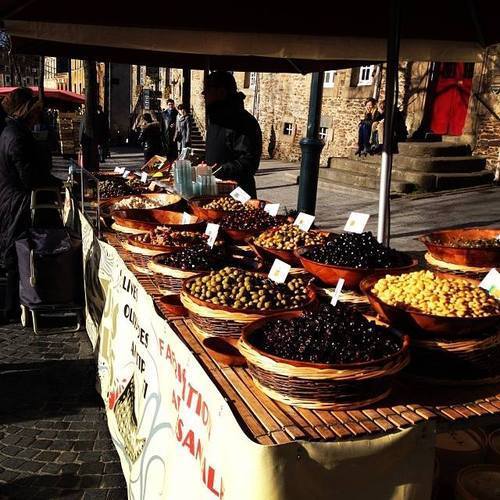
Now, they say you have to lose some to win some, and although last week was not the best, next weekend sounds really promising as me and 6 other friends are making a road trip to Normandy, north of France, most famous for Omaha Beach and the D-Day, but also with great coastlines, birthplace of Monet and la route du Cidre (needless to say why it sounds appealing) Mr. Mickinley's time is nearing! Also, thanks to staying in bed I was able to plan the trip for the week vacation at the beginning of March, but that one shall remain as a surprise ;-)
I know it was not the most exciting week, but hey, they can’t all be great!
PS: Stade Rennais beat Olympique Lyonnais 2-0 on Sunday - Allez les Rouges!
1 note
·
View note
